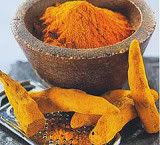Benefits of Turmeric:
- Abdominal Pain
- Anti inflammatory
- Antioxidant
- Anti bacterial
- Anti-venom
- Anti viral
Alzheimer's Disease
Today's news is that turmeric combined with Vitamin D3 offers help for Alzheimer's. Read: Vitamin D and curcumin combo offers brain health potential.
Curcumin is the main ingredient in Turmeric and Curry. Turmeric has been in the news since 2000, as a preventative for Alzheimer's and it has been recommended in large quantities to take to alleviate all symptoms. The problem is and the question of the day is how much is enough. As Curcumin is poorly absorbed, the patient must take large quantities so it stays in the system. Approximately 30-40 percent stays in the body and the rest is excreted through the urine. D3 should be at least 3 to 4 grams per day if not more, but best to have a D3 test beforehand. Most people are deficient. Recommendations of 2000-4000 mgs of curcumin is recommended.
Curcumin should be taken with a fatty meal, such as milk, cheese, plant or animal fat. I must suggest to start out slow and then progressively go higher. I suggest to start at 500-1000 mg per day. There are no documented problems with taking 2000mg, but there could be a problem with higher amounts, so it is better to take it slow. There have been some small trials that showed no adverse affects of up to 8000 mg per day.
One of the best ways to use curcumin in your diet is to put 3/4 cup of curcumin in a bowl and add in 1/4 cup of black pepper. This will increase the strength of curcumin. Then place the mixture in a salt or pepper shaker and sprinkle it generously on your food or even popcorn before serving.
Cancer Prevention
Clinical research has shown that curcumin has been able to slow the development of cancer cells. Curcumin has created cell suicide or Apoptosis as it is called. The main trials have been done on rodents and they are starting the trials on humans so it cannot be stated for sure, but it is indeed looking promising. Many have been taking curcumin for cancer prevention for years and it has shown great success. But after the trials are finished we can say for sure.
Cardiovascular Treatments
Health News reported that curcumin has reduced heart enlargement and lower the risk of heart failure in the studies they had. The studies were being done on rodents at the time. The study shows that mice with enlarge hearts, were injected with curcumin, had their conditions reversed, restored the heart functions and reduced the scar formations. When they did the study on humans, similar findings were noted according to the researchers.
"Curcumin's ability to shut off one of the major switches right at the chromosome source where the enlargement and scarring genes are being turned on is impressive," Dr. Peter Liu, a cardiologist at the Peter Munk Cardiac Centre and scientific director at the Canadian Institutes of Health Research - Institute of Circulatory and Respiratory Health, said in a prepared statement.\
Dr. Liu went on to say that whether you are young or old, the possibility of heart problems is at risk, and you are better to refer to a healthy lifestyle. Until the trials are complete, no one could recommend a specific treatment."
With so much hope and so many trials being completed, we are in hopes of this simple spice becoming a new medical break through. As with anything be careful with what you are taking and start small and if you have no adverse problems then you can increase your dosage. As there is no known cure for Alzheimer's and many other debilitating diseases, we have hope.
Resource:
"Health Benefits of Curcumin," Families
http://www.accelerating.org/articles/curcumin.html
http://www.nutraingredients.com/Product-Categories/Phytochemicals-pla...
http://alzheimer.neurology.ucla.edu/Curcumin.html
Ann Fonfa of annieappleseedproject.org stated that in order to improve your immune system and fight cancer you have to move. So why take all the natural herbs in the world if you are going to be a couch potato. So get moving.
